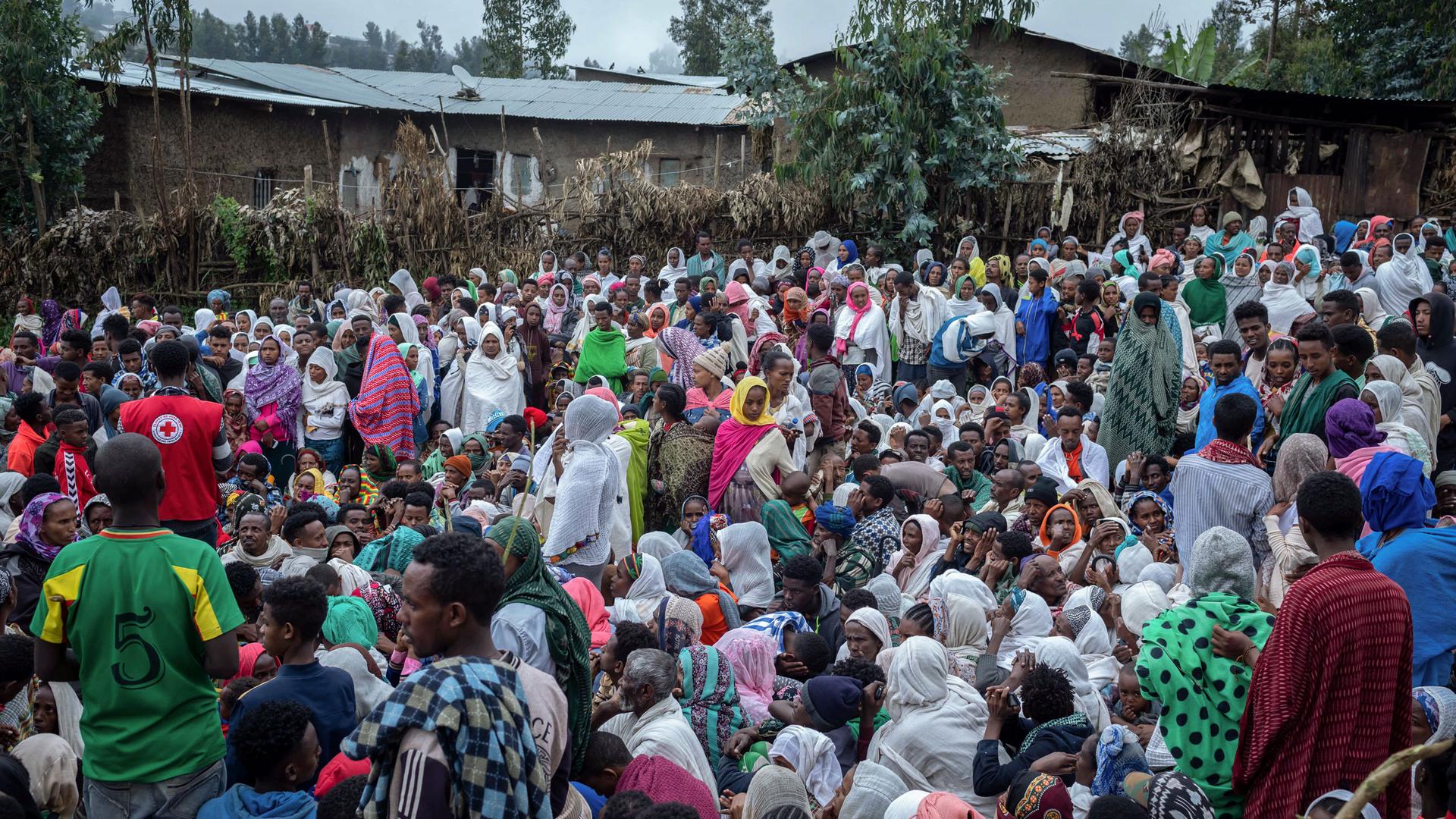Ethiopian officials have accused Tigrayan forces of killing more than 120 people in the neighboring Amhara region.
It’s the latest sign of how the 10-month conflict has extended far beyond Tigray, with deadly consequences.
Related: Tigrayan forces take Ethiopian town known for its ancient churches
“In the case of atrocities against civilians, it has been happening in Tigray since the beginning of the conflict in November last year.”
“In the case of atrocities against civilians, it has been happening in Tigray since the beginning of the conflict in November last year,” said Saviano Abreu, a spokesperson with the United Nations Office for the Coordination of Humanitarian Affairs.
“We condemn any type of atrocities,” he said.
This latest atrocity, according to Reuters, took place in the village of Chenna Kebele, near Gondar city in the Amhara region.
Related: A ‘sick joke’: Tigrayan forces reject ceasefire in Ethiopia
In a statement, the Ethiopian Human Rights Commission said a large number of bodies had been discovered in the area. Residents and local authorities told the commission the victims were killed during a two-day period last week, by retreating Tigrayan forces.
The Tigray People’s Liberation Front (TPLF) has denied what they called a “fabricated allegation” by the Amhara regional government, and rejected claims that Tigrayan forces had killed civilians.
Over the course of the conflict, gruesome human rights violations have been recorded by all parties. But repeated offers and attempts at mediation have so-far failed.
Related: Tigrayans say food is being used as a ‘weapon of war’
“The Ethiopian government has not responded positively to proposals for negotiations. Instead, it has publicly called for the mobilization of militia.”
“The Ethiopian government has not responded positively to proposals for negotiations. Instead, it has publicly called for the mobilization of militia,” said Richard Mills, US Deputy Representative to the United Nations, during a UN security council meeting last month.
“The TPLF, meanwhile, has expanded its own military campaign into the Afar and Amhara regions,” he added.
In recent months, the ongoing fighting between Ethiopian federal defense troops, TPLF, and armed ethnic militias has displaced hundreds of people in Afar and Amhara.
Related: Rising anger as youth get caught up in Tigray war
“The number of people in need of urgent humanitarian assistance in these two regions, in addition to Tigray, is rising daily,” Abreu said.
The World Food Program has warned that more than 1.7 million people in Afar and Amhara are at risk of hunger.
“This has just come to compound an already bad situation, so already, people are food-insecure, but this makes things completely worse,” said Christine Hakonze, head of WFP’s Semera sub-office, in a video posted on social media this week from inside the Afar region.
On top of that, the UN continues to warn of a looming hunger crisis inside the northern Tigray region, which has been mostly cut off from the rest of the country for nearly a year.
Over the weekend, a humanitarian convoy of 150 trucks was able to enter Tigray.
Now there are concerns about how the expansion of violence will further limit access to Tigray, as overland humanitarian access to the region is currently limited to a single ground route through the Afar region.
“The spillover of the conflict is also complicating our operations inside Tigray, humanitarian access into Tigray,” Abreu said.
We want to hear your feedback so we can keep improving our website, theworld.org. Please fill out this quick survey and let us know your thoughts (your answers will be anonymous). Thanks for your time!
